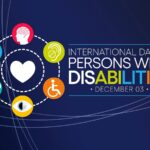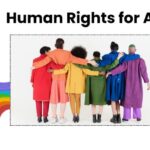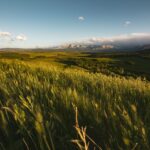The Being Good Relations Network relies on “witnesses” to carry its work forward. Through the winter of 2023, the network is working to renew the relationships and commitments that make our journey possible. Read on to learn more!
In early Christianity, to be a ‘witness’ was to give testimony to what you had seen and heard, often in court. Or to verify that a certain action had occurred, or that someone was who they said they were. Witnessing is also an integral component at some Indigenous ceremonies. At national events of the Truth and Reconciliation Commission, ‘honorary witnesses’ were named. Their role was to listen to and watch everything that transpired at the national event, and then to speak of it in their circles of influence, and inspire their peers and the public to take steps on the journey of reconciliation.
So, likewise, you are asked to listen and learn about Indian residential school history and its impacts, Indigenous history; the impacts of colonialism and the church’s role in colonizing, Indigenous culture, spirituality, and contributions; the United Nations Declaration on the Rights of Indigenous People and treaties; and the possibilities for reconciliation and being good relations. Undoubtedly, once you learn how broken the relationship is, how entrenched racism is, and how injustices have been and continue to be perpetrated against Indigenous peoples, you will have a variety of feelings that will fuel your change of heart and desire to build bridges. Once your ears and eyes have been opened, there is no turning back.
Reconciliation, repentance, truth-telling, forgiveness, justice, healing, and dealing with shame and guilt are at the heart of the gospel. Witnesses are called to testify to the way of Jesus in the context of our relationships that are out-of-balance and need to be set aright. They are also called to recognize the eternal connection between land, Creator, and humans, and making and keeping treaties (covenants).
Witnesses in communities of faith are called to be instigators and motivators, to ‘light fires’, to be the ‘pebble in the pond’ by sharing what they have learned, educating, initiating ‘awkward conversations’, reaching out to build relationships with Indigenous neighbours, standing in solidarity to seek justice and uphold rights, striving to make their community of faith a safe and welcoming place for Indigenous peoples to be. At some point, hopefully witnesses will encourage their community of faith to commit and decide to make reconciliation a priority and develop a way to move forward.
Reconciliation is hard work, requiring spiritual stamina. Always remember that reconciliation is a process – the journey is the destination. A reconciler or bridge-builder may encounter a variety of phases or feelings: confusion, resentment/anger, justification or condemnation, guilt or forgiveness, desire for control, clarity (in theory) on what should happen, frustration, more confusion, hopelessness, humility, no longer obsessed with outcome.
A witness may expect to be a ‘voice in the wilderness’, and surprised by grace and joy.
Never doubt that you can make a difference!
— Compiled from notes delivered by Cecile Fausak, Alberta and NW Conference Living Into Right Relations gathering May 5-7, 2017





